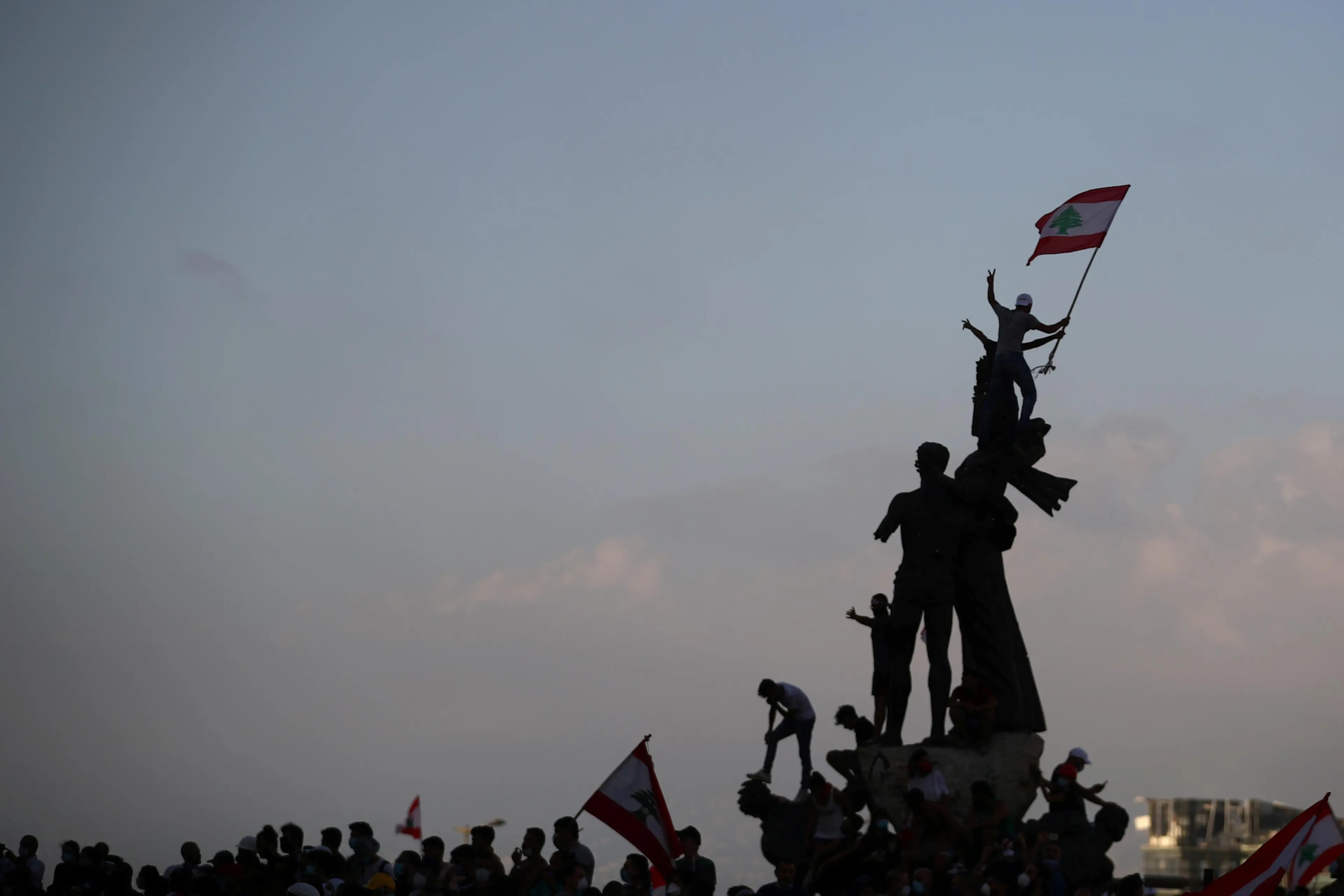PHOTO
Even before that massive explosion in Beirut on Tuesday, the situation in the country was dire. Lebanon, once dubbed the Switzerland of the Middle East, has been on a constant downward trajectory since the 1970s.
The 15-year civil war left scars, both physical and psychological, and there were skirmishes with its southern neighbor Israel, and an influx of refugees (Palestinian, Iraqi and Syrian) from various conflicts afflicting the Middle East. According to UNHCR the country has provided shelter to 9oo,ooo registered Syrian refugees – accounting for unregistered refugees, the real number is well above that.
The government, which is constitutionally required to accommodate various ethnicities and religious persuasions, is gridlocked in sectarian squabbling; so much so that it could not provide the International Monetary Fund with the basic information required for a bailout package, which is direly needed. The economy has hit rock bottom, infrastructure is crumbling and there are rolling power blackouts for up to 20 hours a day. The Lebanese pound is in freefall, joining a list of other failed currencies such as the Argentinian peso, the monthly inflation rate is way above 50 percent and the debt to GDP ratio is 170 percent. According to some economists the middle class has lost two thirds of its purchasing power.
Then came the COVID-19 pandemic, stretching the healthcare system and inflicting further economic pain. Country after country going into lockdown deprived Lebanon of much of its remittances, which account for up to 12.5 percent of GDP.
The economy is a sad example of what happens if corruption and clientelism are allowed to go unchecked.
That was the background against which the massive explosion rocked Beirut and devastated much of the city. It destroyed the grain silos storing around 85 percent of the country’s needs. It also destroyed the port, which, according to S&P Global, handles 60 percent of Lebanon’s imports. This is important because the Lebanese economy is essentially services based and therefore dependent on imports for the most of the country’s basic needs.
Lebanon is Europe’s near neighbor. Even before the catastrophic devastation caused by the explosion, Europe should have done a lot more to help Lebanon. Alas, Europe was busy with Brexit, myriad other issues and most recently COVID-19, which meant that it paid too little attention to its Middle East neighbor.
Europeans are worried about refugees from troubled countries in the Middle East. The EU’s agreement with Recep Tayyip Erdogan is testament to that fear: They provided Ankara with 6 billion euros in exchange for Turkey hosting more than 3 million Syrian refugees (the UK becomes concerned if a few hundred migrants cross the channel in dinghies, which further ullustrates the gravity of the situation). If anything, the refugee crisis should have made it clear to European leaders that they had a duty of care toward a neighbor who generously accommodated so many Syrian refugees, even if its government is inept and corrupt.
French President Emmanuel Macron did not wait long and visited Beirut one day after the explosion. The scenes were heartbreaking. Agitated people, broken by years of economic malaise, asked the French leader for help, and not just economic aid. They want to see the culprits held to account. That is not the task of a foreign country, certainly not a former colonial power, irrespective of how dysfunctional the political elite is. The scenes unfolding in Beirut last week show how bad the situation is and that Lebanon’s neighbors must help.
The EU has so far released $39 million in emergency aid and the first planes have arrived. That is a mere drop in the ocean, though. The explosion left at least 300,000 people homeless and initial estimates of the cost of the damage come in at $15 billion.
Europe will find on its borders a country in an already volatile situation facing hunger, if food cannot be imported. The northern port of Tripoli can never handle the volumes required to feed the Lebanese population.
David Miliband, the former UK foreign minister and now head of the International Rescue Committee aid organization in New York, put it well when he said Europe needed to respond as one to the explosion and that the UK should be part of that effort even if it had left the EU. Europeans love to espouse lofty humanitarian values. This disaster is an excellent opportunity to put their money where their mouth is.
Europe should also coordinate with the Gulf states and multilateral agencies such as the World Bank and the Islamic Development Bank. Massive reconstruction efforts cannot be undertaken alone, but require coordination.
The EU was caught on the back foot at the beginning of the coronavirus pandemic when pictures made the rounds of Russian and Chinese planes laden with protective equipment for northern Italy, while EU countries were blocking exports of just such goods to their allies. It is in nobody’s interest to see a repeat performance, particularly as Lebanon has long been a playground for foreign powers. China, Russia and Iran might be only too pleased to step into any vacuum.
- Cornelia Meyer is a business consultant, macro-economist and energy expert. Twitter: @MeyerResources
Copyright: Arab News © 2020 All rights reserved. Provided by SyndiGate Media Inc. (Syndigate.info).





















